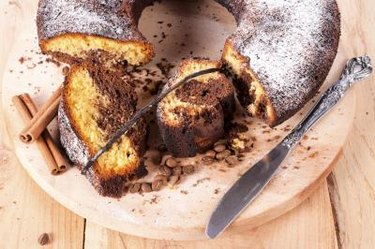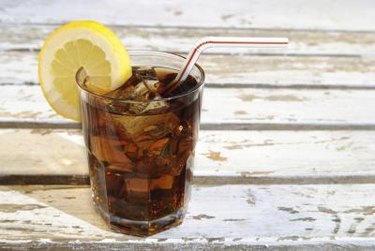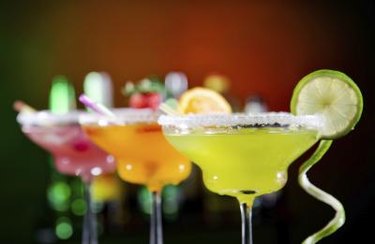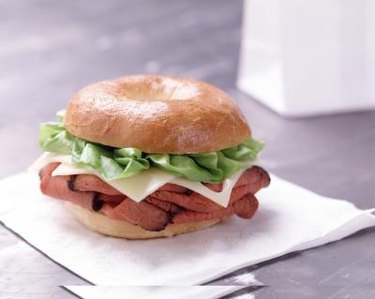
Panic disorder and obsessive compulsive disorder, or OCD, are types of anxiety disorders. These conditions may cause panic attacks, compulsive behaviors and obsessive thoughts, sometimes resulting in a disabling impact on one's life. These disorders may be treatable with a combination of medication and psychotherapy. Avoiding certain foods and following a diet that emphasizes nutrient-rich whole foods may also help control anxiety disorder symptoms.
Sugary Foods
Video of the Day

Eating foods that have a lot of added sugars -- such as soda, candy and other sweets -- raises blood glucose levels, resulting in a temporary, mood-elevated high. For some people, the stimulating surge of the sugar high may cause panic attack symptoms. Once blood sugar levels drop, this may cause a "crash," characterized by a depressed or irritable mood state, that can trigger anxiety in some others. Sugary foods may contribute to anxiety especially in people who are very sensitive to the effects of sugar, including individuals with hypoglycemia or other blood glucose disorders. It's important for people with anxiety disorders to keep their blood sugar as stable as possible by eating plenty of nutrient-rich foods including fruits, starchy vegetables and whole grains.
Video of the Day
Caffeinated Foods

For people with severe anxiety symptoms such as panic attacks and compulsive behaviors, limiting caffeine intake is a must. Caffeine may increase anxiety in some people due to its stimulating effects on the nervous system. You're probably aware that coffee and colas contain caffeine, but it's important to note some less-obvious food sources of caffeine include chocolate, green tea and soft drinks other than colas. Certain medications may also contain caffeine. According to the Edmund J. Bourne's "The Anxiety and Phobia Workbook" published in 2005, people with anxiety disorders should evaluate all forms of caffeine in their diet and strive to reduce caffeine consumption to 100 mg/day or less. People who are especially sensitive to caffeine may want to avoid it altogether, notes Bourne.
Alcohol

Unlike caffeine, alcohol is a depressant that produces a sense of relaxation that may temporarily relieve anxiety. However, over time, alcohol -- as well as illegal drugs -- can make anxiety worse and trigger panic attacks or OCD behaviors. In addition to its profound psychological effects, alcohol also destabilizes blood sugar and interferes with sleep, possibly further contributing to anxiety. Alcohol use may also interact with medications used to treat anxiety disorders, rendering them less effective or causing a dangerous sedative effect. Unfortunately, alcohol abuse and illegal drug use are common in people with OCD. In order to properly treat an underlying anxiety disorder, it's crucial to get appropriate treatment for a drug or alcohol problem.
Processed Foods

"The Anxiety and Phobia Workbook" recommends that people with anxiety disorders reduce intake of processed foods that stress the body due to additives like salt and preservatives. In particular, an additive called MSG, a common ingredient in processed foods such as soups, frozen dinners and fast food, may cause nervousness and malaise, according to an article on nutrition and anxiety by Ilyne Sandas, M.A., L.P. and Christine Siegel, M.A., L.P. Anecdotal evidence that processed foods may contribute to mental health problems was supported by a study published in "The British Journal of Psychiatry" in 2009 which concluded that a diet high in processed foods such as refined grains, processed meats and sweetened deserts contributed to depression in middle-aged adults, whereas a diet rich in whole foods such as fruits, vegetables and fish proved protective for mental health.
Is this an emergency? If you are experiencing serious medical symptoms, please see the National Library of Medicine’s list of signs you need emergency medical attention or call 911.